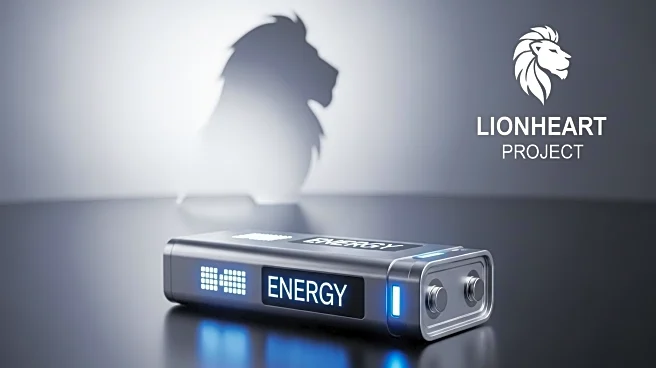What's Happening?
Vulcan Resources has entered into a significant agreement with Glencore to supply lithium hydroxide monohydrate from its Lionheart Project, located at the French-German border. This deal involves the delivery of between 36,000 tonnes and 44,000 tonnes of lithium hydroxide monohydrate over an initial eight-year period, which represents approximately 20% of Vulcan's planned output during this timeframe. The Lionheart Project is recognized as the largest lithium resource in Europe. This agreement with Glencore is the final offtake arrangement for Vulcan's Phase One project financing, complementing previous deals with Stellantis, Umicore, and LG Energy Solution. Vulcan's CEO, Cris Moreno, highlighted the strategic mix of partners involved in Phase One lithium production, emphasizing their strong European focus.
Why It's Important?
The agreement between Vulcan Resources and Glencore marks a pivotal moment in the European lithium market, potentially enhancing the region's capacity to supply critical materials for electric vehicle batteries and other technologies. As Europe seeks to reduce its reliance on imported resources and bolster its green energy initiatives, securing local lithium production is crucial. Vulcan's strategic partnerships with major automakers and battery manufacturers underscore the growing demand for sustainable and locally sourced lithium. This development could influence the dynamics of the global lithium market, impacting pricing and availability, while supporting Europe's transition to renewable energy and electric mobility.
What's Next?
With the completion of the final offtake agreement for Phase One, Vulcan Resources is poised to advance its Lionheart Project further. The company is also in discussions with other European automakers, indicating potential expansion of its customer base. As the project progresses, stakeholders will likely monitor the impact on lithium supply chains and pricing. Additionally, Vulcan's success in securing diverse partners may encourage other companies to pursue similar strategies, potentially leading to increased investment in European lithium resources.
Beyond the Headlines
The Lionheart Project's success could have broader implications for the European Union's energy policy and industrial strategy. By fostering local lithium production, Europe may strengthen its position in the global battery supply chain, reducing dependency on external sources. This shift could also stimulate job creation and technological innovation within the region, aligning with broader environmental and economic goals.









